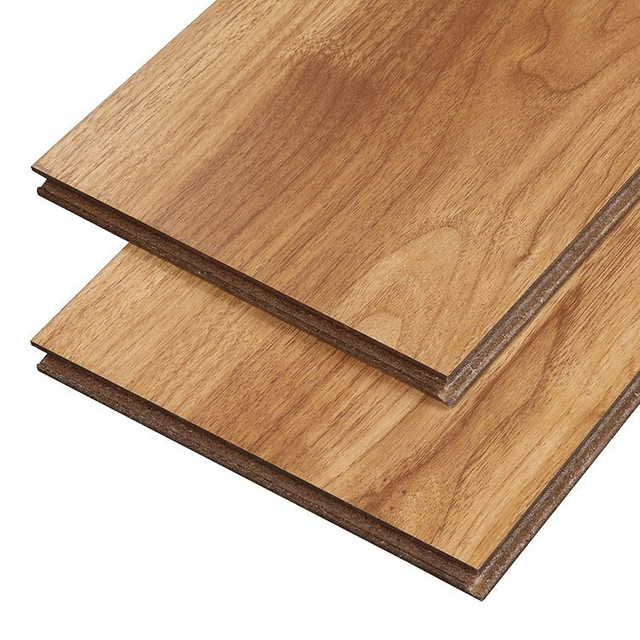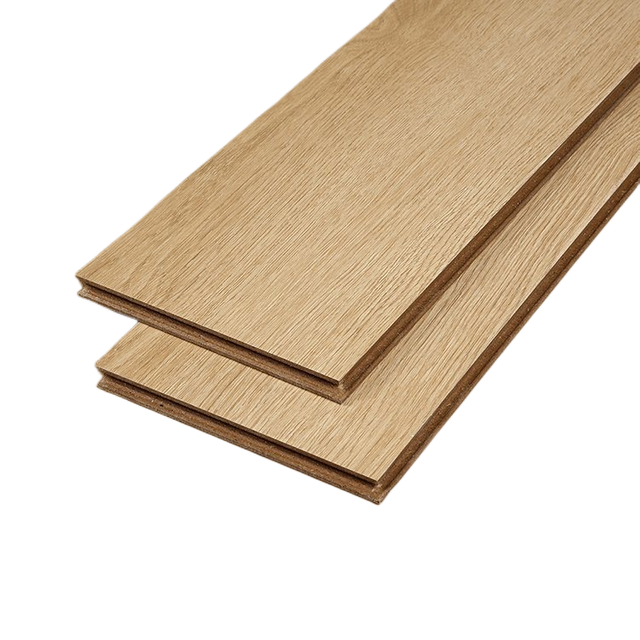Are you looking for the best wooden flooring for your home? The right choice can elevate your space and increase its value. But with so many options, choosing the best type of wooden flooring can be confusing.
In this article, we’ll explore different types of wooden flooring and help you decide which one fits your needs. You’ll learn about the pros and cons of various flooring options, from solid hardwood to laminate and more.
Types of Wooden Flooring
1. Solid Hardwood Flooring
Solid hardwood flooring is a classic and timeless choice for any home. Made from a single piece of wood, it offers a beautiful, natural look with unique grain patterns. Some of the most popular species used for solid hardwood flooring include oak, maple, hickory, and cherry.
Pros:
Durability: Solid hardwood floors can last for decades and even improve with age.
Resale value: This type of flooring is highly sought after and can significantly increase your home’s resale value.
Refinishing: One of the main advantages of solid hardwood is that it can be sanded and refinished multiple times, allowing you to refresh its look as it ages.
Cons:
Price: Solid hardwood is often one of the more expensive flooring options.
Moisture sensitivity: Solid hardwood floors can warp or swell in areas with high moisture, making them less suitable for bathrooms or basements.
Installation: Installing solid hardwood often requires professional help, especially if you're looking for the best results.
2. Engineered Hardwood Flooring
Engineered hardwood flooring is made by bonding a thin layer of real hardwood to multiple layers of plywood or fiberboard. This design makes it more stable than solid hardwood and less prone to warping.
Pros:
Stability: Engineered hardwood handles moisture and temperature changes better than solid hardwood, making it suitable for basements, kitchens, and bathrooms.
Affordability: Generally less expensive than solid hardwood, engineered wood is a more budget-friendly option.
Easy Installation: Many engineered wood floors come with a click-lock installation system, making them a great DIY project.
Cons:
Limited Refinishing: The top veneer of engineered wood can only be sanded and refinished a limited number of times, depending on its thickness.
Shorter Lifespan: While durable, engineered hardwood may not last as long as solid hardwood.

3. Bamboo Flooring
Bamboo flooring is an eco-friendly alternative to traditional hardwood. Made from bamboo grass, it has a similar look and feel to hardwood flooring but is a more sustainable choice due to bamboo's rapid growth.
Pros:
Sustainability: Bamboo is one of the most renewable flooring materials available, as it grows much faster than hardwood trees.
Durability: Bamboo is a hard and durable material, especially the strand-woven variety, which is tougher than oak.
Moisture Resistance: Bamboo is more resistant to moisture than solid hardwood, making it a good choice for kitchens and bathrooms.
Cons:
Prone to Scratches: Bamboo can scratch more easily than some hardwood species, so it might not be ideal for homes with pets or children.
Humidity Sensitivity: While bamboo is moisture-resistant, it can crack or warp in extremely humid conditions.
4. Laminate Flooring
Laminate flooring is made from a high-density fiberboard core with a photographic layer that mimics the appearance of wood. It’s often considered a budget-friendly alternative to hardwood flooring.
Pros:
Cost-Effective: Laminate is one of the most affordable flooring options, making it ideal for homeowners on a budget.
Durability: It’s scratch-resistant and can withstand high foot traffic.
Easy Installation: Many laminate flooring options come with a click-lock system, making installation quick and easy.
Cons:
Lifespan: Laminate typically lasts 10 to 20 years, which is shorter than solid or engineered hardwood.
Not as Authentic: While laminate mimics the look of wood, it doesn’t provide the same natural feel, and the sound underfoot can be less appealing.
5. Luxury Vinyl Plank (LVP)
Luxury vinyl plank (LVP) is a synthetic flooring option that mimics the look of wood while offering a durable and water-resistant surface.
Pros:
Waterproof: LVP is completely waterproof, making it perfect for kitchens, bathrooms, and basements.
Durability: LVP is highly durable, resistant to scratches, and easy to maintain.
Comfort: It’s softer underfoot compared to hardwood, making it more comfortable for standing or walking.
Cons:
Not as Eco-Friendly: Unlike wood, vinyl is not biodegradable and is made from synthetic materials, which can have an environmental impact.
Less Authentic Appearance: While LVP is designed to mimic wood, it doesn’t have the same texture or warmth as real wood.
6. Wood-Look Ceramic Tile
Wood-look ceramic tile offers the aesthetic of wood but with the benefits of tile. It’s made from ceramic or porcelain and mimics the grain and texture of real wood.
Pros:
Waterproof: Ceramic tile is completely waterproof, making it a great choice for bathrooms and kitchens.
Durable: Tile is resistant to scratches, dents, and fading, providing a long-lasting flooring solution.
Low Maintenance: Ceramic tile is easy to clean and maintain.
Cons:
Hard Underfoot: While durable, tile can feel cold and hard, making it less comfortable to walk on for long periods.
Not as Authentic: Though it mimics the look of wood, wood-look tile lacks the warmth and natural feel of real wood.

Factors to Consider When Choosing Wooden Flooring
Choosing the best wooden flooring depends on several factors, including:
1. Durability
Durability is one of the most important factors to consider when selecting wooden flooring. Solid hardwood and engineered hardwood are highly durable, with solid hardwood being the longest-lasting. Laminate and LVP are also durable but may not last as long as natural wood options.
2. Moisture Resistance
If you’re installing flooring in a high-moisture area such as a kitchen, bathroom, or basement, moisture resistance is key. Engineered hardwood, bamboo, LVP, and wood-look tile are all excellent choices for these areas due to their moisture-resistant properties.
3. Aesthetic
The look and feel of the flooring is another crucial consideration. Solid hardwood and engineered hardwood provide a natural, warm aesthetic that many homeowners desire. Bamboo offers a unique, eco-friendly look, while laminate and LVP can mimic the appearance of real wood at a lower price point.
4. Budget
Wooden flooring can be expensive, especially when opting for premium species like walnut or exotic hardwoods. Laminate and LVP are more affordable alternatives that still offer a wood-like appearance without breaking the bank. However, if budget allows, investing in solid or engineered hardwood can offer long-term value.
5. Maintenance
Consider how much time you’re willing to dedicate to maintaining your floors. Solid hardwood and engineered hardwood may require occasional refinishing, while laminate, LVP, and wood-look tile are generally easier to maintain.
Conclusion
Choosing the right wooden flooring is essential for both aesthetics and functionality in your home. Whether you prefer the timeless appeal of solid hardwood or the practicality of laminate, there’s a wooden flooring option that suits every need and budget. At BS-SPC, we offer a wide range of high-quality wooden flooring options to help you transform your space. Our expert team is here to guide you in selecting the perfect flooring solution for your home. Trust BS-SPC to provide the best wooden floors that combine style, durability, and value.
FAQs
Q: What’s the difference between solid and engineered hardwood flooring?
A: Solid hardwood is made from a single piece of wood, while engineered hardwood has a layer of real wood on top of a plywood core, offering better stability and moisture resistance.
Q: Which type of wood flooring is best for high-traffic areas?
A: Hardwood, especially oak and hickory, is ideal for high-traffic areas due to its durability. Engineered hardwood and laminate are also good options for such spaces.
Q: Can I install wood flooring in my kitchen or bathroom?
A: Yes, but engineered hardwood or bamboo is a better option than solid hardwood, as they handle moisture better. Laminate and vinyl are also excellent moisture-resistant choices.
Q: Is bamboo flooring as durable as hardwood?
A: Bamboo is quite durable, especially strand-woven bamboo, but it can be more prone to scratches than hardwood. It’s a good option for eco-conscious homeowners.
Q: How long will my wooden floor last?
A: With proper maintenance, solid hardwood floors can last up to 100 years. Engineered hardwood and laminate typically last 25-30 years, depending on wear and care.





















